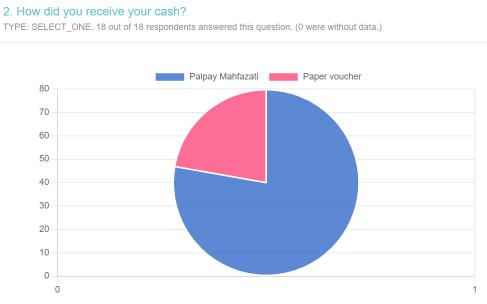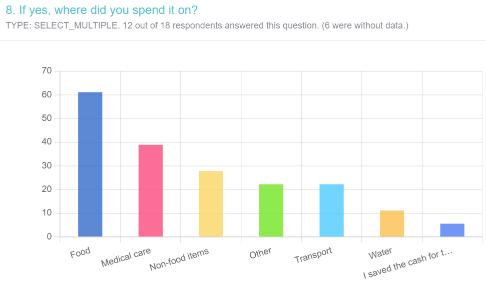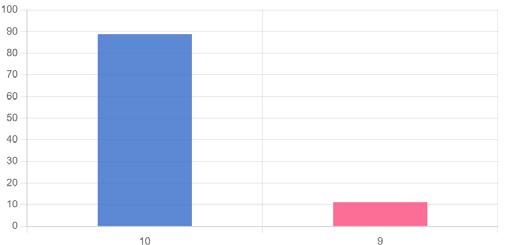
Electronic cash assistance
To war-affected people in Gaza through PalPay Mahfazati via RedRose
Pilot project – March 2025






Electronic cash assistance
To war-affected people in Gaza through PalPay Mahfazati via RedRose
Pilot project – March 2025




ZOA is an international humanitarian organization who supports people affected by conflict and disaster. ZOA increasingly assists affected populations with digital cash assistance through the RedRose platform, either directly integrated with a local financial service provider or through their smartcard solution.
To test whether the digital delivery of cash is feasible in Gaza, an electronic cash pilot project was set up and implemented. Given the extremely difficult security situation, limited humanitarian access and severe liquidity constraints in Gaza, there are multiple benefits of digital cash compared to physical cash. Therefore, the aim of the pilot is to see if those who have been severely impacted by the conflict could be assisted with digital multipurpose cash, to enable them to cover their most urgent basic needs. ZOA is the first organization to test this modality through RedRose in the Gaza Strip, making use of the digital integration of PalPay into the RedRose platform.
The specific objective of the pilot project is twofold:
1 To test whether affected populations are able to receive digital cash through PalPay Mahfazati, through an integration with the RedRose platform
2 To test whether affected populations are able to spend digital cash on their most urgent needs
To use PalPay Mahfazati, a smartphone is needed to create an e-wallet through the PalPay Mahfazati application. To test if people who do not have a smartphone can benefit, a printed paper voucher option, directly downloaded from the platform, is included in the pilot as well.

The target group of the pilot are the most vulnerable IDPs, residing in four different locations in southern Gaza. Registration of IDPs was done through KOBO by a local team (one male and one female) through ZOA’s partner iTrust, who has a large network in Gaza.
The following four locations were selected:
1 Al Mawasy Camp
2 Nuseirat Camp
3 Bureij Camp
4 Deir al-Balah
For the pilot, in total, 14 persons were selected for the PalPay Mahfazati e-wallet and 4 persons for the printed paper voucher option. In line with the recommendations of the Cash Working Group, the transfer value was 1.000 NIS.
The following data is needed for registration and required as Know Your Customer (KYC) information by PalPay to create an account:
• Full name in Arabic and English
• National ID number + upload copy of national ID
• Upload a selfie or photo
• Birthdate
• Mobile Number
• Gender
• Address (region and governorate are enough)
As verification method, the National ID number is used by PalPay to ensure the name of the recipient corresponds with the national ID.
Once all Kobo surveys are uploaded, an excel download is checked and approved by the monitoring team. This data is uploaded in RedRose. Unique recipient profiles are automatically created on the platform.
Once final recipients are approved, cash is efficiently disbursed through the platform. Each person receives an SMS that informs them about the cash transfer to their PalPay Mahfazati wallet for use. Paper vouchers are automatically created and accessed on the platform. Once printed and distributed, they can be used by recipients at PalPay agents in Gaza.


All 18 pilot participants confirmed reception of the complete cash transfer, which demonstrates that despite the difficult situation in the Gaza Strip the PalPay Mahfazati services are functioning.

It took a number of weeks to channel the funds from ZOA through the RedRose platform to PalPay due to administrative barriers. However, when the cash was released, 13 out of the 14 PalPay Mahfazati e-wallet recipients received the cash instantly or within a couple of hours. A mistake in the ID number was the reason one person did not receive the cash, which was easily solved. Out of the 14 e-wallet recipients, 12 confirmed being able to instantly use the cash they received on their account. The remaining two indicated they either 1) decided to save the cash for the future or 2) wanted to cash out the amount but were faced with fees of 20-25% to do so.

The majority of the e-wallet respondents reported they spent the cash on food (11), medical care (7) and non-food items (5). Those who reported ‘’other’’ mentioned clothes, diapers and baby milk.
Another finding is that it was possible for recipients to transfer the amount received on their PalPay Mahfazati account directly to their bank account. However, the usefulness and added value was limited so few recipients chose to do this.
All 4 paper voucher recipients confirmed being able to redeem their voucher at a PalPay vendor or agent. This was done at different shops and supermarkets in various locations in southern Gaza. However, all 4 recipients reported they had to pay 20 NIS fee (2%) in order to purchase items or have the amount transferred to their digital account. Besides these extra costs, they highly preferred receiving their cash in their e-wallet because of the flexibility and possibilities this provides over a paper voucher. Moreover, the far majority of the population in Gaza (appr. 95%) does have access to a smartphone within the household, so only in exceptional cases the paper voucher option was considered.
The paper voucher recipients also reported to have spent their cash mostly on food (2), medical care (1), non-food items (1).

The majority of the respondents confirmed to be able to (at least partly) buy their items of preference (13 out of 18). Those who were not able to do so (5 out of 18) reported that they could not purchase their preferred items but had to switch to suboptimal options. This was due to limitations in the availability of goods on the market in Gaza.


The overall satisfaction among participants of the pilot project is very high, with 16 out of the 18 rating it a 10 out of 10 and 2 persons with a 9 out of 10.
• The PalPay Mahfazati e-wallet solution, integrated with RedRose, is functioning and is an effective way to provide multipurpose cash assistance to war affected populations in Gaza.
• Overall satisfaction of the pilot participants is very high, with most rating it a 10/10, as recipients are able to receive the cash on their account and are able to spend it.
• There are limitations in the availability of goods on the market, but most participants were still able to spend the cash on their items of preference and were able to address urgent needs.
• Yet, it is important to take the needs of the (most vulnerable of the) remaining 20% who do not own a phone into account.
• Local vendors accept the use of the PalPay Mahfazati wallet for payment, and the majority of the vendors has access to this modality.
• The printed paper voucher modality is functioning, but is less effective, less preferred and more costly due to high transaction fees experienced at PalPay vendors and agents.
• Withdrawal of digital cash into physical currency/hard cash is possible, but due to severe liquidity issues this is extremely costly (transaction fees up to 20-25% of the total amount).
• Financial flows and transfer of funds (ZOA through RedRose to PalPay) does take a significant amount of time (number of weeks) and can cause delays.
• This innovative approach holds great potential to deliver humanitarian assistance in this hard-to-reach context, so it is highly recommended to scale up this approach and address urgent needs of war-affected persons in Gaza more effectively.
• The Palpay Mahfazati delivery option is more efficient, more effective and better accessible for recipients than the paper voucher option. This delivery option should be the preferred option for scale-up.
• As a relatively new payment solution in a complex humanitarian setting, it is important to invest in the use of multiple information sharing channels and explainers how the solution works.
• It is recommended to recruit more enumerators to register more project participants.
• It is recommended to expand this pilot to northern Gaza and test the Palpay Mahfazati solution in this context, where the needs are extremely high.
• It is recommended to invest in monitoring and evaluation, including a Feedback and Complaints Mechanism and Integrity Framework.
• Improve administrative processes and advocate for a less time-consuming cash delivery chain with PalPay through RedRose.